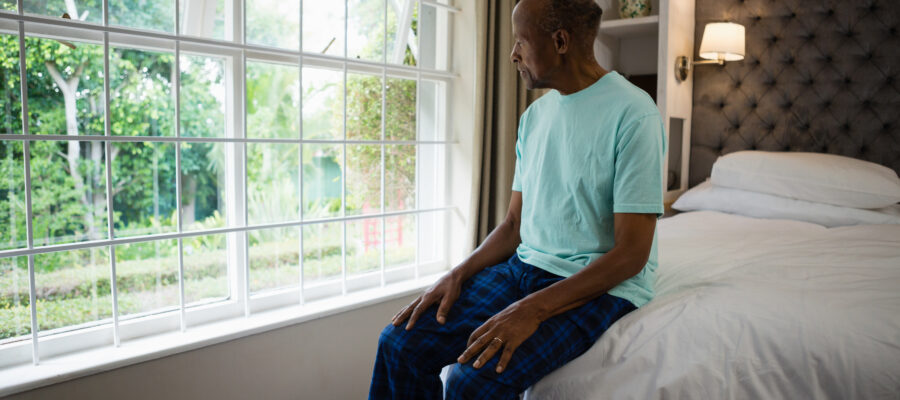Mental health is a major issue for seniors living alone. A Michigan Medicine study reveals that one-third of elderly individuals in America age 50 to 80, feel lonely, leading to anxiety and depression. These mood disorders can worsen due to concerns about health, finances, and other stressors.
Fortunately, there are ways for older people to get the care they need to achieve higher levels of mental wellness. This guide provides tips and solutions.
Mental Health Problems Among the Aging
Many seniors struggle with poor mental health due to various factors, such as:
- Isolation: Seniors are often lonely because they have lost loved ones. They may also have limited social interactions due to mobility issues.
- Finances: Older individuals often live on limited budgets, leading to financial concerns.
- Failing Health: Psychological issues may also be tied to illness, impairment, and other health conditions.
How to Improve Senior Well-Being
Families can address mental health issues in various ways, with many being tied to the support of in-home aides, as follows:
- Companion Care: Caregivers can talk to loved ones and listen to their stories, so they don’t feel isolated. They can take their mind off their troubles and help them deal with anxiety.
- Assistance with Treatment: A home aid can help with medicine administration and ensure the client follows their treatment plan to achieve higher levels of physical wellness and feel better about their health.
- Promotes Social Interactions: Caregiver services may include transportation and teaching the client how to use technology so they can attend social functions and interact with loved ones online.
- Encourages Independent Living: With caregiver assistance, adults can live more independently. Caregivers can improve safety at home, making it easy for seniors to get around and make other changes that boost autonomy, so older adults feel better about themselves and don’t have to worry about uncompleted tasks.
- Therapy: Senior citizens may decide to attend therapy sessions. An expert in psychology can determine ways to relieve depression and anxiety.
- Apps: Several online apps can help aging adults improve mental wellness.
- Consult the AARP: This organization offers resources for seniors with poor mental health, including a resource center, online community forums, and links to organizations, such as the American Association for Geriatric Psychiatry, to help them find the right therapist. Check out this link for more information on becoming a member.
Caring Family Provides the Assistance You Require
Various aspects of aging can lead to isolation and declining mental health. Caring Family can help. Our skilled staff offers home care services, letting loved ones know they are not alone. We provide a personalized approach that supports overall wellness.
Contact us to learn how we can help your family prepare for all aspects of the aging process.
FAQ
What is the most common mental disorder among seniors over age 65?
Depression is the most prevalent mental disorder in older adults. Seniors who experience depression may suffer mentally or physically. It can increase the risk of disease and complicate existing conditions.
What happens to elderly people who have no one to take care of them?
When elderly people don’t have anyone to take care of them, their mental and physical health can deteriorate considerably. Their risk of accidents, financial struggles, and social isolation increases.
What to do if an elderly person is not taking care of themselves?
If you notice a lack of self-care in an elderly acquaintance, try talking to them and listening to their needs. Provide suggestions for getting help. If they refuse to get help, consult their doctor or seek professional advice from a social worker or geriatric care manager.




